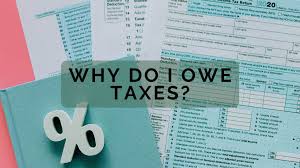Buying a rental car may allow you to purchase a newer-model vehicle at a lower cost, but you should carefully examine the pros and cons before doing so.
Thousands of rental cars are placed on the market each year by large car rental companies such as Avis, Enterprise, and Hertz as they prepare to replace their fleets with newer models.
You could be concerned about a rental vehicle’s mileage or how well it’s been maintained. However, there may be advantages to buying a rental car that outweigh some of the disadvantages.
Why Do Car Rental Companies Sell Their Cars?
Rental companies have traditionally updated their fleets every year or two since they receive large fleet discounts on new cars and have tax and other incentives to sell. Indeed, several automakers will buy back rentals at a fixed price within a certain time and mileage constraints and sell them on dealer lots as “program cars.” However, rental companies also buy vehicles entirely, which they frequently resell on their own lots.
Enterprise Holdings, Hertz Global Holdings, and Avis Budget Group are the parent companies of several rental services in the United States. They offer automobiles directly to consumers — both rentals and non-rentals, such as customer trade-ins — through their car sales sections, which you may shop online.
#1. More wear and tear, but well cared for
Potential buyers may be concerned that a rental car has been driven by a slew of irresponsible drivers. And, according to David Bennett, AAA’s repair systems manager, that’s not far off the mark. Renters, he claims, “may not take as thorough care of the vehicle that is not theirs.” Simultaneously, drivers often desire to minimize any damage to the car in order to avoid being charged when they return it.
While rental cars may see additional wear and tear due to several drivers, precautions are made to guarantee that all necessary maintenance is performed. Before being sold, they are also properly inspected.
Bennett claims that most rental companies keep their automobiles in excellent condition. The three major players adhere to rigorous servicing schedules. Before putting vehicles on the market, they hire licensed technicians and perform their own multipoint inspections.
#2. Used automobiles that are nearly new yet have a higher mileage
Rental automobiles typically have more miles on the odometer than a typical used car of the same age, which can be a source of anxiety for purchasers. However, Bennett emphasizes that mileage is “only one element” in evaluating a car. “You may have a really high-mileage car that’s been very well maintained, and the car is excellent,” he says.
Furthermore, because rental companies sell relatively new cars — often just 1 to 2 years old — they may still be covered by the factory warranty. Avis, Hertz, and Enterprise vehicles also come with 12-month or 12,000-mile powertrain warranties.
However, vehicle shortages have also impacted rental car companies. When travel was halted in April 2020, they sold most of their vehicles in order to avoid bankruptcy. As they resumed their travels, they discovered that new cars were difficult to come by. To cope, businesses have kept automobiles for longer periods of time and even purchased used cars for their fleets.
That means the vehicles on their lots may have greater miles than in previous years, have less warranty coverage, or have beyond the duration of their factory warranty.
#3. No haggling and reasonable prices
Rental companies sell their vehicles at fixed prices that may include discounts. Good deals, on the other hand, may be tougher to come by in the current market. Prices initially fell at the start of the coronavirus pandemic. Prices thereafter climbed to market level or higher as used-car stocks shrank.
Buyers can still get a decent deal on some makes and models but do your homework. Avis Car Sales claims to price vehicles lower than Kelley Blue Book’s normal dealer listing price in the area, while Enterprise Car Sales will show the typical listing price online if its own pricing is lower. Hertz Car Sales’ online listings contextualize prices by presenting Kelley Blue Book’s fair market range, which estimates how much you should anticipate paying for that vehicle.
Before buying a rental car, compare advertised costs to internet pricing guides such as Kelley Blue Book and the National Automobile Dealers Association to ensure you’re genuinely saving money.
#4. The inventory is limited, yet it is simple to shop.
Most rental automobiles do not have extras such as improved luxury or performance packages. If you want a one-of-a-kind hue or combination of options, you’ll have to look elsewhere. In addition, compared to a national car business like CarMax, there may be a lower selection of manufacturers and models. If you don’t find the vehicle you’re looking for right away, try exploring a larger area and having the car transported to you.
When you identify a strong candidate, Avis, and Hertz provide three-day extended test drives, as opposed to the normal 15-minute spin around the block at regular dealerships. There will be a rental cost, but it will be repaid if you purchase the car.
If you opt to rent a car, you may do a lot of it online, over the phone, or in person. Contracts can usually be signed at a rental site or even mailed to your home.
If you are unhappy with your purchase, Hertz will buy it back within seven days or 250 miles, whichever comes first. The same warranty is offered by Enterprise for seven days or 1,000 miles.
A Step-by-Step Guide to Buying a Rental Car
#1. Connect to the internet.
Simply go online to get started. You can view inventories by price, body style, and location on the websites of Enterprise, Avis, and Hertz.
#2. Understand your financial situation.
This may be apparent, yet it bears repeating. Take some time to figure out what you can realistically afford before you start shopping. Start a loan calculator and enter your payment range, estimated APR, and loan length.
#3. Determine the type of car you desire and require.
This may sound apparent as well, but it’s a lot easier to limit your search by body style and number of seats when you have a starting point.
Do you want a three-row SUV or a two-row SUV? A hatchback or a tiny car? A vehicle? What is the all-wheel drive? All-wheel drive? Perhaps you want a roadster but your family needs more space. How much baggage can you realistically transport in your trunk? Do you want something more opulent, or is that not a priority for you?
These are good things to consider before you go shopping.
#4. Get your loan pre-approved.
Typically, rental car companies offer their own finance. According to McParland, “it is always a good idea to shop your loan around and obtain a pre-approval before buying a rental car.”
This step is especially significant if your credit score isn’t perfect and your APR varies greatly from one bank to the next.
#5. Obtain a vehicle history report.
Vehicle history records, which contain a wealth of important information about cars, are available from services such as Carfax. You’ll be able to examine prior owners, odometer readings, accidents or repairs, damage, and open recalls for the vehicle.
Obtaining a vehicle history report is not required, but it is strongly recommended. It will show you if anything serious has happened to the car that should give you pause. Even if you acquire a vehicle history record, you should still have an independent check performed. More on that later.
#6. Make use of the rent-to-own option.
When seeking to buy a car, you should always take it for a test drive. Always, always, always, always. Test drives allow you to get a true sense of the car, see how it makes you feel, and, most importantly, determine whether there are any red flags.
There are several things to keep an eye out for while driving. Is your car making strange noises when you’re driving? Is there extra vibration coming through the steering wheel that shouldn’t be there? Do the brakes feel comfortable? Is the air conditioner and heater operational? Do all of the windows function properly?
Don’t forget to put the car’s technology to the test. Experiment with the infotainment screen (if applicable). Is it simple to use or complicated? How simple is it to sync your phone with the car?
Keeping this in mind, searching for a used rental car provides a unique possibility that you won’t find while looking at a typical dealer or used car lot: the rent-to-buy function.
Read Also: Best Car Rental Software For Your Rental Business In 2023
Rent2Buy is a program offered by Hertz. It allows you to test drive a car that is for sale for a three-day rental term for a nominal charge. If you end up buying the car, Hertz will waive the cost. Just make certain that the program is offered in your area.
Avis has a comparable program called the Ultimate Test Drive. Customers can select their vehicles and test drive locations online and book everything. Then they may go pick up the car and test drive it for two hours for free. Customers can then keep the car for up to three days for a price. Again, if you decide to purchase the car, Avis will reimburse the rental charge.
An extended test drive is perfect because you can take the car home, park it in your driveway, and really have a big amount of time to sleep on it.
Try commuting to work or running errands in it. See what it’s like to live with someone. After the first day of driving that particular car, you may see the benefits or drawbacks of owning it. You’ll be able to see if it will fit in your garage or if it can accommodate all of your friends and family.
Most importantly, you may make your decision on your own time, away from a demanding and annoying salesperson.
#7. Be aware of “no-haggle” pricing.
No-haggle pricing is advertised by rental car companies such as Enterprise, Avis, and Hertz. It means that you pay the price you see. But don’t be put off by the “no haggling” policy. Used rental automobiles are typically less expensive than comparable cars on the market.
In this scenario, no-haggle can mean no stress or bargaining.
#8. Examine the warranty.
When a car is new enough, it may still be covered by the manufacturer’s warranty. However, rental car companies also provide their own warranties and special benefits.
For example, Avis provides a 12-month/12,000-mile limited powertrain component warranty from the date of purchase.
Hertz claims that its vehicles come standard with a 12-month/12,000-mile limited powertrain warranty. In the event of a mechanical, transmission, or drive-axle breakdown, it covers the repair or replacement of covered items.
All Enterprise vehicles come with a 12-month/12,000-mile limited powertrain warranty.
You’ll have to study the fine print to find out the specifics.
#9. Have your car examined.
Okay, so you discovered a car you like that meets your needs and purchased it at its no-haggle price. Great! What comes next? Have it inspected
The drawback of that cheap, no-haggle pricing and all the other promotional perks is that the rental car you just picked up will nearly always have a lot more kilometers from other people using it. Even if rental companies adhere to stringent maintenance schedules, it is still necessary to ensure that everything is in good mechanical and operating order.
Pros and Cons of Buying a Rental Car
Pros
- A cost-cutting measure: Rental companies buy in bulk and at a reduced price. As a result, they may sell vehicles at lower prices than a regular dealership. Depending on the vehicle, the average savings could be 10% or more.
- Newer vehicle for less money: It is easy to locate 1- to 2-year-old vehicles, which may have the most recent body style or safety features. These automobiles would cost thousands more on the used car lot of a franchise dealership.
- Simple sales process: Avis, Enterprise, and Hertz all offer no-haggle pricing. Avis and Hertz both provide free two-hour test drives, as well as a three-day “rent to buy” program in which you pay a daily rental cost (at a reduced rate, in the case of Hertz). If you buy, the companies will return your rental charge. Enterprise and Hertz both have seven-day return policies to help with buyer’s remorse.
- Well-maintained vehicles: Rental companies are attentive to vehicle maintenance. All planned maintenance is completed at the intervals indicated by the manufacturer.
- Limited warranty: Most major rental companies offer a 12-month or 12,000-mile limited powertrain warranty to buyers. This is greater coverage than you’d get at an independent used car lot, where the majority of automobiles are sold as-is. You will inherit any remaining balance on the vehicle’s factory warranty in either location.
Cons
- Uncertain history: Determining how hard a rental car was driven is tough. While some people may be cautious when driving a rental, others may drive more aggressively because it isn’t theirs.
- Higher-mileage inventory: The average number of miles driven per year in the United States is around 14,000. However, in a rental fleet, you can easily locate vehicles with double or triple that number of miles.
- Possibility of being out of warranty: Because of the increased mileage, the car may be past its factory warranty coverage. Any repairs that are required will very certainly have to be paid for out of pocket.
- Cars with few options: Don’t expect to find top-of-the-line autos with a plethora of luxury options. Due to the reduced cost and ease of buying, car rental companies typically purchase base versions, thus luxury amenities and advanced safety systems may be difficult to find.
Is It Safe to Buy a Rental Car?
As an added bonus, most rental cars are equipped with the most recent safety technology because they are so new. However, before you buy a car from a rental fleet, make sure it’s completely safe for you and your family by looking into its history, inquiring about any recalls, and scheduling an inspection.
You can usually get one of these for free when you rent a car. Ask for it if you can’t find it on the menu. Any minor problems have likely been dealt with internally, but any that require extensive repair or salvage will be handled by an insurance company. There will be a record of those incidents in the car’s past.
Taking care of regular maintenance is easy, but processing every recall repair can be a huge hassle. Vehicle rental agencies ought to deal with such issues as they arise, but you should verify this personally.
It’s a good idea to have a mechanic look over a used car because of the increased likelihood of extensive wear and tear on its components. You can buy it immediately after inspecting it, as most rental car agencies have seven-day return policies. If the inspection reveals a problem, you can get your money back.
When Are Rental Cars Good to Buy?
There are a lot of benefits that come along with purchasing a rental automobile, and some of them address some of the most significant issues that people have when it comes to purchasing cars in general.
Should I Buy a Rental Car?
Buying a rental automobile was often thought to be a poor investment due to the excessive mileage and wear that renter tend to put on their vehicles. However, as time has gone on, individuals have come to the realization that the positives might significantly exceed the negatives. Buying a car from a rental company could seem like a smart choice because of their stringent maintenance standards, lower rates, “no haggle” sales, rent-to-buy possibilities, extended warranties, and return policies that are in place for seven days.
Can You Negotiate Buying a Rental Car?
If you are currently standing at the rental desk of the firm, and they are this close to renting you a car, there is a good chance that they are willing to haggle with you. Additionally, there are occasions when they engage in extensive bargaining. Don’t let the fact that you find the bargaining embarrassing stop you from engaging in it.
Is Owning a Car Rental Business Profitable?
Beginning a business in the renting of automobiles can be highly lucrative. You can do a lot if you put in the effort to properly prepare, carry it through, and work hard. In the following paragraphs, you will find information that will teach you the secrets to beginning a profitable automobile rental business. Importantly, finishing your business plan is a necessary step in getting your own automobile rental company off the ground.
Is It a Bad Idea to Buy a Rental Car?
You should carefully consider a number of things before deciding whether or not to purchase a rental automobile, the most important of which are your budget as well as your requirements and preferences in terms of vehicles.
Conclusion
It is up to you to decide whether or not to purchase a rental car. If you have a specific brand, model, or feature in mind, or if you want a car with low mileage, you might not be able to get it at a rental firm. If you intend to sell or trade in the car in the future, the decreased resale value may be a problem.
However, if you want a newer car at a reasonable price, renting one may be a decent option. Just make sure that any rental car you’re thinking about getting has a vehicle history report. Before determining which car is best for you, take advantage of test drive opportunities and have the car inspected by a reputable mechanic.
Buying a Rental Car FAQs
Why do rental cars sell so cheap?
Rental companies keep their vehicles in good condition and strictly adhere to servicing schedules. Furthermore, because rental car companies buy in bulk and pay less upfront, their resale costs can be lower.
Which is cheaper renting or buying a car?
Renting or leasing a new car is less expensive than buying one.
Related Articles
- LONG TERM RENTAL: What You Need to Know
- ARE HOME WARRANTIES WORTH IT? The Myths and Reality of Home Warranties Revealed
- Blue Ribbon Home Warranty Reviews 2023- See Best Plans
- BUYING A RENTAL PROPERTY: Tips on Buying a Rental Property (Updated 2023)
- AMERICAN RESIDENTIAL WARRANTY: Best Easy Guide for Newbies






